Faces of the Times
A handshake speaks volumes of these people, even when we had no means of communication.
In the small town of Dengkil, you can meet a microcosm of what Malaysia truly is. Walking by the local mosque during Aildil Adha after the morning sermons were finished, the group of people streaming out would be familiar to any Malaysian at present. All were Bangladeshis who form part of the 2 million or so immigrants and foreigners that call Malaysia home for economic reasons. As they exit the mosque, these people who are often more misunderstood most of the time show a side that we don't often acknowledge, that they are just as human as any resident here in the country. Seeing their compartiots, they openly welcome each other by giving hugs and embraces, surprisingly a gesture that many locals would not even deign to show citing impropriety of public indecency.
In a land which they don't speak the lingua franca (I tried but was replied by a mix of body language and facial expressions), often working in the lowest paying jobs that Malaysians scoff at, they often only have themselves to rely on. Looking back at our nation's history this is a glimpse of what our forefathers endured, living in ramshackled conditions, far away from home anf often exploited and at worse endured suffering and death. The camaraderie and friendship shown by these people only serve to define what Malaysians are and what we can expect the demographs to be in future, some foreign nationals already surpasses the legal numbers of certain races in the country, so how do we define ourselves as a nation? Do we still go by race, religion and political affiliations? Or do we look beyond and treat a citizen as anyone who contributes to the nation, a nation of melting pot that is not one or the other but of the whole.
Another quark we seen in this town is a reflection that Malaysia is very much a multicultural and tolerant nation, even if this was truer in the past then present. A stone throw away from the main road of Dengkil we can see the mosque that the Bangladeshis stream out from, is also a Chinese temple set up in the early 30s and further down is a small roadside shrine and temple manned by Hindu Priests. If the proximity of structures of various religion is not enough, we bumped into a Chinese uncle seating on the five foot walkway who greeted my Indian friend with so fluent Tamil that she was amazed that he spoke even better than most Indians, and this was his only language. Times are changing and multiculturalism is giving way to racism and narrow minded politics. We should take a leaf from the little town of Dengkil, located near to the ultra modern administrative capital of Putrajaya (of which is nearly all Malays), that we as a nation are more than the sum of our race, religion and beliefs and we share this land with each other, for better or for worse.
Talking on the phone to home.
All smiles and as charming in wit, he must be the most fluent and eloquant Tamil speaker that Visithra had met.
Bangladeshis waiting off the rain after morning sermons at the mosque.


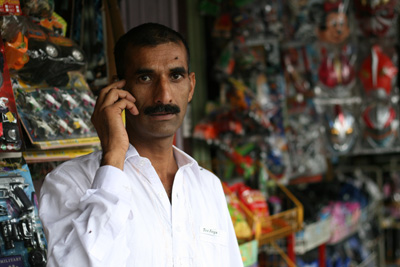
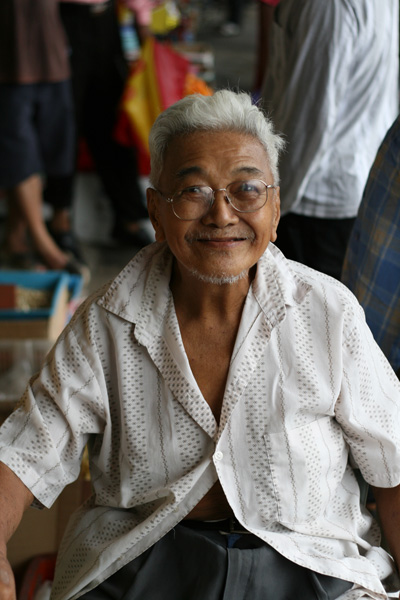
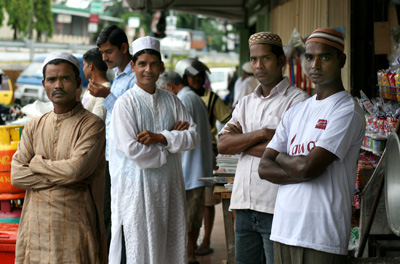
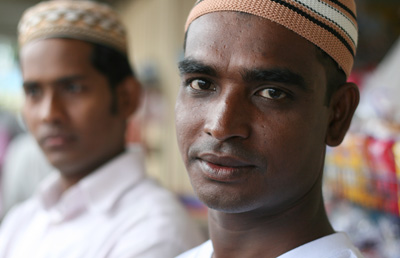
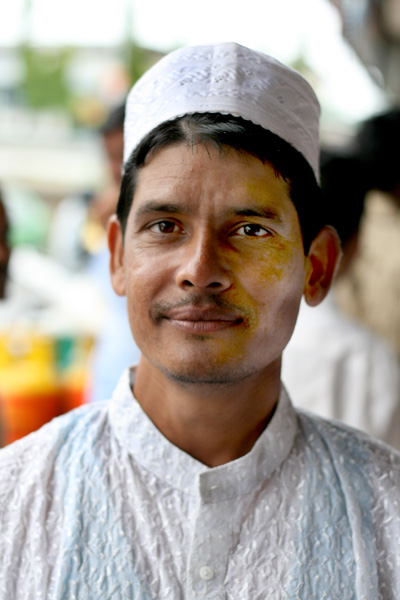
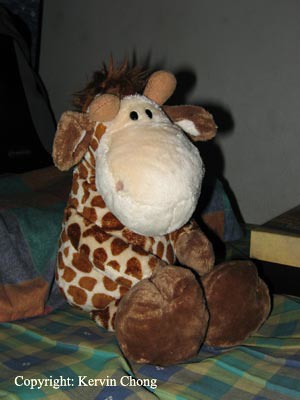

1 comment:
love the post kerv – this is why I love small towns – there is a racial harmony n friendliness that you don’t see anywhere else
- vis
Post a Comment